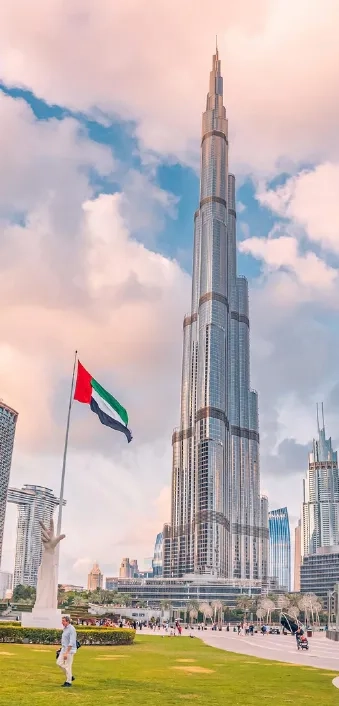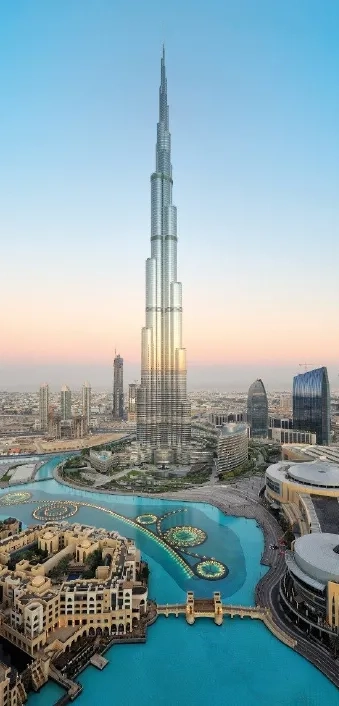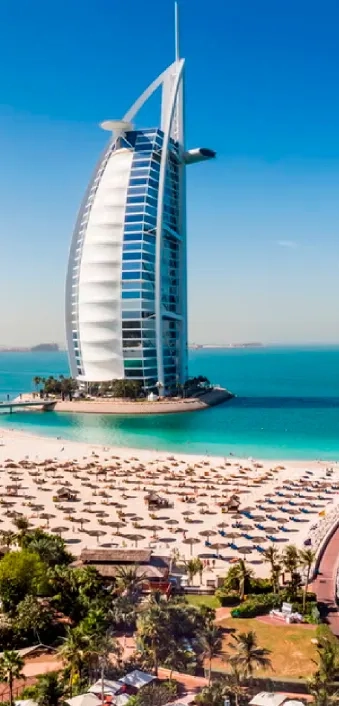Telephone Numbers
For detailed information +90 542 381 3868'Call.
Dubai is a strategically significant hub for gold trading, attracting investors and entrepreneurs from around the world. With its geographic advantages, tax incentives, and a thriving tourism industry, the city offers a unique ecosystem for those looking to enter the gold business. From traditional gold souks to modern trading platforms, Dubai presents a wide spectrum of opportunities rooted in both heritage and innovation.
The streamlined business setup processes accelerate market entry for entrepreneurs, while a transparent regulatory framework aligns with international standards. Rising demand for gold among tourists and high-net-worth individuals creates substantial potential for new entrants. Thanks to its dynamic structure, Dubai provides investors with opportunities for sustainable returns and access to global business networks.

Gold represents a cornerstone of Dubai’s economic framework. Historically situated at the crossroads of Africa, Asia, and Europe, the city has leveraged its location to become a global center for gold trade. Today, gold stands out as a leading non-oil revenue generator for the emirate, fueling both wholesale and retail sectors.
Nicknamed the “City of Gold,” Dubai attracts millions of investors and tourists annually, who contribute significantly to the local economy through gold purchases. The sector not only supports economic growth but also enhances Dubai’s standing on the global financial and commodity trading map.
Dubai’s rise to global leadership in gold trading is the result of its strategic geographic location, robust logistics infrastructure, and investor-friendly policies. Acting as a bridge between East and West, the emirate facilitates the smooth flow of gold across international markets. Its ports, air cargo terminals, and integrated transportation networks make it a hub for fast and reliable trade.
Dubai’s retail gold market—featuring its iconic Gold Souk and world-class shopping malls—welcomes millions of visitors annually. International events such as Dubai Jewellery Week further cement the city’s influence in the gold and jewellery industry. Together, these elements position Dubai as a premier global destination for gold trade.
The Cultural and Economic Significance of Gold
In Dubai, gold is more than just an investment—it is a powerful cultural symbol. Long associated with wealth, status, and tradition, gold plays a central role in weddings, celebrations, and life’s major milestones. The handcrafted jewellery showcased in the city’s historic souks reflects this vibrant cultural legacy.
This deep-rooted cultural affinity also translates into modern economic relevance. Gold serves as a hedge against inflation and a highly liquid asset. By integrating traditional values with advanced technology and global market trends, Dubai maintains its leadership in gold trading both culturally and commercially.
Dubai is one of the rare cities that blends traditional craftsmanship with a contemporary shopping experience. The most striking example of this harmony is the Gold Souk in Deira, one of the world’s most famous gold markets. With hundreds of jewelers lined up in this historic bazaar, its vibrant displays of intricate designs, gold bars, and investment-grade products attract millions of visitors annually. Competitive pricing, superior craftsmanship, and a lively atmosphere make it appealing not only for shopping but also for cultural exploration.
On the other hand, modern shopping destinations like the Gold & Diamond Park and Dubai Mall cater to a more upscale clientele. These luxury centers offer certified products in premium settings, featuring international brands and bespoke jewelry collections. Preferred by both tourists and affluent residents of Dubai, these venues stand out for their quality service and trustworthy offerings.
For professional investors and large-scale traders, the Dubai Gold and Commodities Exchange (DGCX) plays a crucial role. These high-tech platforms provide a secure and regulated environment, reinforcing Dubai’s leadership in the global gold market. Whether in traditional souks or modern malls, Dubai offers a comprehensive and diversified trading ecosystem for both gold buyers and sellers.
Requirements for Engaging in the Gold Trade in Dubai
Starting a gold trading business in Dubai requires a clear strategy and strict adherence to the legal framework. First, the business model must be defined—whether retail, wholesale, manufacturing, or digital sales. This decision will shape both the licensing process and operational structure.
The next step is choosing a business location. While Dubai Mainland is known for its historic markets and bustling trade zones, the DMCC Free Zone is popular for its tax advantages and streamlined setup processes. Alternatively, the Gold & Diamond Park caters to businesses looking to operate in more niche, specialized segments.
Obtaining the appropriate license is the most critical legal step. These may include general trading licenses, jewelry manufacturing permits, or sector-specific licenses issued by authorities such as DMCC. In addition, compliance with Anti-Money Laundering (AML) regulations, product certification, and proper transaction record-keeping are mandatory.
To ensure smooth financial operations, opening a corporate bank account tailored to the gold industry is essential. With the right preparation, full regulatory compliance, and a solid business plan, entrepreneurs can confidently establish a sustainable gold business in Dubai.
Choosing the Right Business Model for Gold Trade in Dubai
Before entering the gold market in Dubai, it's vital to accurately define your market positioning. The business model you choose will not only determine your field of operation but also influence your target audience, license type, and growth potential. Key business models include:
Retail Jewelry Business: Ideal for those looking to open a store in Dubai’s traditional souks or luxury malls. This model focuses on selling gold jewelry, decorative pieces, and investment gold directly to consumers.
Wholesale Gold Trading: Targeting institutional buyers and international clients, this model deals in raw gold, bullion, and coins. It relies on high-volume, low-margin transactions.
Manufacturing and Refining: Suitable for entrepreneurs looking to create their own brand or process raw gold into finished products. This includes jewelry production, coin minting, and refining—activities requiring technical expertise.
E-Commerce Sales: Selling gold products via digital platforms appeals especially to tech-savvy and younger consumers. Through online marketplaces, social media, and dedicated e-commerce websites, businesses can reach a broader audience.
Each model comes with its own licensing requirements, operating costs, and legal obligations. Therefore, entrepreneurs must thoroughly analyze their target market, capital structure, and technical infrastructure to select the most appropriate business model.


For entrepreneurs looking to engage in the gold sector in Dubai, obtaining the correct license is the first and most critical step. The type of license to be chosen varies depending on the business activity and the area in which the business will be established. The emirate offers a wide range of licensing options through various jurisdictional areas that cater to different business models.
DMCC Free Zone License: The Dubai Multi Commodities Centre (DMCC) offers specialized licenses for companies looking to engage in gold trading, manufacturing, and refining. With 100% foreign ownership, tax exemptions, and state-of-the-art infrastructure, this zone is an attractive hub for international investors.
Mainland License (DED): Companies wishing to operate in central areas of Dubai, particularly in high-traffic trade locations like the Gold Souk, require a license from the Department of Economic Development (DED). This license provides access to the local market, branch opening, and expansion opportunities.
Gold & Diamond Park License: For those specializing in jewelry design, production, and retail, this area offers a tailored ecosystem. Ready retail spaces, workshops, and an expedited application process make this zone ideal for industry professionals.
E-Commerce License: Entrepreneurs wishing to sell gold or jewelry through digital platforms are eligible for an e-commerce license. This license allows access to both local and international customers through online sales.
Each license type includes requirements such as a business plan submission, documentation of financial resources, and compliance with Anti-Money Laundering (AML) regulations. Selecting the appropriate license type not only ensures legal compliance but also lays a solid foundation for the sustainability of the business.
Establishing a gold trading company in Dubai involves carefully planned legal and operational steps. The emirate offers investors a quick and transparent company setup process:
Determining the Jurisdiction: The company must decide whether to operate on the mainland, in a free zone, or in a specialized trade area. Each area offers different features in terms of tax advantages, ownership rights, and market access.
Commercial Name Approval: The company name must be determined and approved according to Dubai's commercial naming rules.
Defining the Business Activity: The company’s business sector (e.g., gold trading, manufacturing, or jewelry retail) must be clearly defined, and the relevant authority’s permission must be obtained.
Preparation of Required Documents: The following documents are typically required:
Obtaining the Trade License: Once all documents are approved, the trade license is issued, allowing the business to legally commence operations. At the end of this process, entrepreneurs can begin legally operating in Dubai's stable and profitable gold market.
Opening a corporate bank account is mandatory to operate a gold business in Dubai. This is essential for secure financial transactions as well as legal and financial transparency. It is important to choose a bank that understands the specific needs of gold trading. Banks such as Emirates NBD, Mashreq Bank, and HSBC offer special services for large-volume transactions and currency operations. Multi-currency accounts, dedicated account managers, and international transaction facilities are significant advantages for companies in the gold trading business.
Banks expect transparency and legal compliance from businesses as part of their Know Your Customer (KYC) procedures. The volume of transactions, source of funds, and commercial activities must be clearly detailed. The bank will activate the account after a review process, which can take several weeks on average.
For entrepreneurs looking to operate in Dubai’s gold sector, obtaining the correct license is the first and most critical step. The type of license required depends on the nature of the business activity and the zone in which it will operate. The Emirate offers a wide range of licensing options through various jurisdictions, tailored to different business models.
DMCC Free Zone License: The Dubai Multi Commodities Centre (DMCC) provides specialized licenses for companies involved in gold trading, manufacturing, and refining. Offering 100% foreign ownership, corporate tax exemptions, and world-class infrastructure, the DMCC is a highly attractive option for international investors.
Mainland License (DED): For businesses aiming to operate in central areas such as the bustling Gold Souk, a license issued by the Dubai Department of Economic Development (DED) is required. This license allows access to the local market, as well as opportunities to open branches and expand within the UAE.
Gold & Diamond Park License: This area is specifically structured for those specializing in jewelry design, manufacturing, and retail. With ready-made retail spaces, workshops, and a simplified application process, the Gold & Diamond Park is ideal for industry professionals seeking a focused commercial environment.
E-Commerce License: Entrepreneurs who intend to sell gold or jewelry through digital platforms can apply for an e-commerce license. This allows access to both local and international customers through online sales.
Each license type includes requirements such as submitting a business plan, proof of financial resources, and compliance with Anti-Money Laundering (AML) regulations. Choosing the appropriate license ensures not only legal compliance but also establishes a strong foundation for long-term business sustainability.
Establishing a gold trading company in Dubai involves a series of carefully planned legal and operational steps. The Emirate offers a fast and transparent business setup process for investors:
Choosing a Jurisdiction: Decide whether the company will operate in the mainland, a free zone, or a specialized trading area. Each offers different benefits in terms of tax incentives, ownership rights, and market access.
Trade Name Approval: Select a business name and obtain approval from the relevant authority to ensure compliance with Dubai’s naming regulations.
Defining Business Activity: Clearly define the scope of the company’s operations (e.g., gold trading, manufacturing, or jewelry retail) and obtain the necessary permissions from the relevant authority.
Document Preparation: Typically required documents include:
Obtaining the Trade License: Once all documents are approved, a trade license is issued, allowing the company to operate legally. At this point, entrepreneurs can begin doing business in Dubai’s stable and profitable gold market.
Opening a corporate bank account is essential for operating a gold business in Dubai. It ensures secure financial transactions as well as legal and financial transparency. It is crucial to choose a bank that understands the specific needs of the gold industry.
Banks such as Emirates NBD, Mashreq Bank, and HSBC offer specialized services for high-volume transactions and foreign currency operations. Multi-currency accounts, dedicated relationship managers, and ease of international transfers are key advantages for gold trading firms.
Banks require businesses to demonstrate transparency and compliance as part of their Know Your Customer (KYC) procedures. This includes clear documentation of transaction volumes, sources of funds, and commercial activities. After a review process that may take several weeks, the bank account is activated.

Absolutely. Dubai offers an ideal environment for digital gold trading thanks to its strong infrastructure and global reputation. With e-commerce licences, companies can sell gold products online and easily reach international customers. Gold trading businesses need to fully comply with anti-money laundering (AML) legislation. In addition, the purity and certification of gold products must be documented and every transaction must be recorded in detail.
Licences to trade gold in Dubai can be obtained from three main sources: Dubai's Ministry of Economic Development (for mainland operations), the DMCC Free Zone and the Gold and Diamond Park. The type of licence to be obtained is determined by the area in which the business will operate, such as retail, manufacturing or wholesale.
Yes, 100% foreign ownership is possible in companies established in the mainland or free zones. However, the local shareholding requirement in mainland enterprises can only be lifted in line with certain exemptions or legal regulations.
Dubai offers VAT exemption for investment grade gold products and does not impose corporate tax. However, a 5% VAT applies to gold jewellery and other merchandise. Tourists can reclaim this VAT.
Gold trading businesses must fully comply with anti-money laundering (AML) legislation. In addition, the purity and certification of gold products must be documented and every transaction must be recorded in detail.
Absolutely. Dubai offers an ideal environment for digital gold trading thanks to its strong infrastructure and global reputation. With e-commerce licences, companies can sell gold products online and easily reach international customers. Gold trading businesses need to fully comply with anti-money laundering (AML) legislation. In addition, the purity and certification of gold products must be documented and every transaction must be recorded in detail.